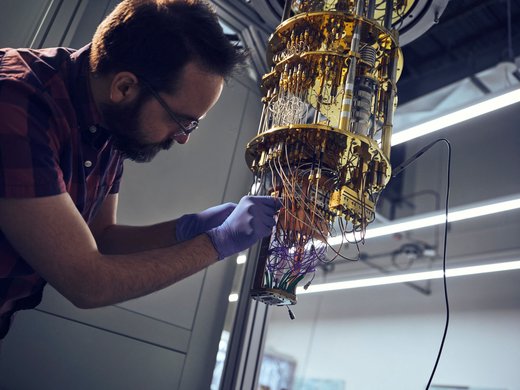Artificial intelligence (AI) and 5G are infrastructure layers for future technologies: 5G enables collection and use of data while AI unlocks the ability to extract value from that data. For Canada’s economic prosperity, we need strategic stewardship of Canada’s investment in these technologies. And that stewardship starts with Canadian firms owning the innovation assets—intellectual property (IP) and data.
Unfortunately, Canada currently has gross incapacity and disorientation when capturing IP. Canada is great at creating ideas and new technologies, but falls short at commercializing them. We’ve seen this in the AI space where our publicly funded education system has produced strong talent whose success has been limited to the creation of technology that we allow foreign companies to swoop in, commercialize, and then charge us to use.
A somber statistic: since 2015, foreign companies own about 70 per cent of the roughly 1,600 AI and machine-learning patents filed by Canadians at the U.S. Patent and Trademark Office. Worse yet, Canada is the only jurisdiction among the top 10 AI patent-filing countries to actually see a decrease in the number of patents applied for every year between 2016 and 2018, as reported by The Logic in December 2018. This is all despite the launch of high-profile government funding initiatives, such as the Pan-Canadian Artificial Intelligence Strategy and the Vector Institute—neither of which has the mandate to help Canada accumulate valuable AI assets
Indeed, then-Google chairman, Eric Schmidt, personally thanked Canada in 2017 for inventing the future of AI and machine learning, saying they now use Canadian publicly funded IP throughout their entire businesses to drive their corporate success. Patents for this technology cover fundamental principles of AI and Google could use them to stop many AI companies dead in their tracks.
When it comes to 5G—the next evolution of wireless communication—the Canadian government has provided hundreds of millions of dollars to research programs, as 5G is expected to provide ultrafast data transmission and enable new technology creation. However, Chinese firms such as Huawei are currently the main beneficiaries of these public investments. Seven of the top 10 patent inventors for Huawei Technologies Canada come out of research done at five different Canadian universities.
This practice of Canadian taxpayers subsidizing the creation of IP that is ultimately owned by foreign tech giants needs to stop now. First, as investors, we pay for the research but don’t get return on the investment. Second, Canadians will eventually be paying again as consumers for the technology whose creation we subsidized and invented.
Finally, and arguably most importantly, since IP and patents give the right to prevent others from practicing the technology, every dollar that we spend funding the foreign capture of our IP substantially reduces any domestic company’s ability to participate in that global market and secure their freedom to operate.
Indeed, both Google (versus Levandowski) and Huawei (versus Verizon) have recently and aggressively pursued hundred million dollar intellectual property lawsuits in the U.S. IP is clearly important to these world-leading technology champions—why hasn’t IP been important enough to Canadians?
Fortunately, there are things we can and need to do to improve our situation and be more competitive in the global innovation economy. The launch of Canada’s National IP strategy in early 2019 is a welcome endorsement of the importance of intellectual property in the innovation economy.
Inventors and firms need to understand the value of IP and be supported to own and retain it. IP education is a critical underpinning to understanding and exploiting opportunities to own innovation. IP generation and associated costs need to be recognized and encouraged through government funding and tax policy.
Because Canada owns very little IP, there is a minefield of existing IP rights that Canadian firms must navigate when commercializing globally. Initiatives like the patent collective pilot, which is a data-driven, clean technology focused $30-million mechanism, are needed to increase the freedom-to-operate of Canadian high growth firms.
Next, we must develop a sophisticated and robust IP retention strategy for our publicly funded projects to ensure that we get a positive return on investment for innovation funding, like AI- and 5G-funding programs we currently invest in. We must ensure proper stewardship of Canada’s innovation assets by creating a strategic review of acquisitions in key technology sectors.
Finally, we must empower Canadian companies by supporting the capture, ownership, and value extraction of Canada’s data assets created by the 5G and AI opportunities.
Canadian national IP strategy is being framed in a predatory and aggressive international context with well-resourced countries like the U.S. and China playing a sophisticated game. At a time when the government is desperately looking for new revenues to sustain our publicly funded health-care system and our economy, counterproductive economic strategies need to be urgently questioned. If Canadian leaders can similarly create innovation success by owning IP and data when technology is scaled globally, then Canada will ensure its economic prosperity for generations to come.
This article originally appeared in The Hill Times.



